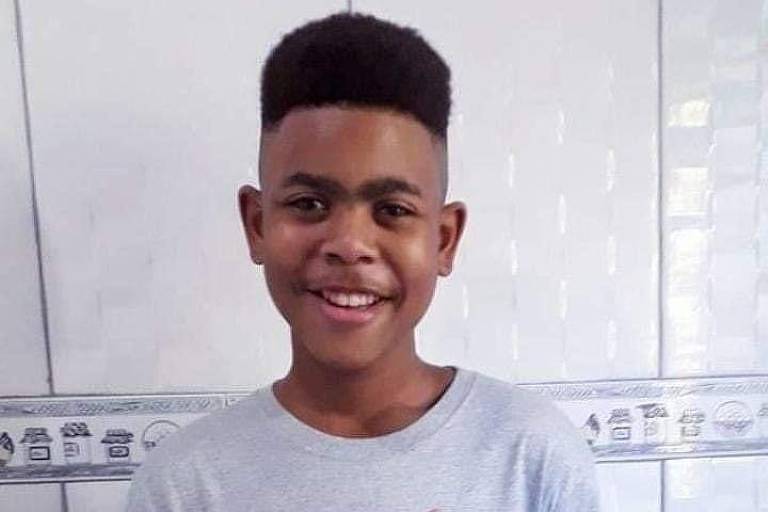“Mom, that could have been me.”
That was the reaction of a 17-year old boy after watching the televised shooting of 14-year old Joao Pedro Matos Pinto, who was killed by police in his uncle’s home in Brazil’s North Zone of Rio de Janeiro.
According to the National Institute of Public Security of Rio de Janeiro (ISP-RJ), the number of killings by state agents has soared in the 22 years since the agency started tracking these deaths. In 1998 there were 397 homicides, by 2019, this number jumped to 1,814, following years of steady increase. A recent study by the same organization showed that the number of deaths by the police during the quarantine period, increased 43%.
“The story of Joao Pedro is the clear example that the police’s priority is to kill, and not to save people,” said José Ignacio Cano, coordinator of the Laboratory of Violence Analysis for the State University of Rio de Janeiro.
He said in many countries during the pandemic, police and the military are being used to contain the virus, but not in Rio de Janeiro. The local police are notorious for being known as the most violent in the world, according to separate reports by Amnesty International and Human Rights Watch .
“They are apparently dedicated to developing the program of extermination promoted by the state,” he said.
But the police have an excuse for the May 18 killing of the boy. They said the house was being used as a hiding place for criminals, who were fleeing from the police and the criminals allegedly had fired at the police and thrown grenades. No witnesses support the police account. Joao Pedro, was playing with his cousins when struck by a stray bullet.
“As far as we know, there appears to have been no confrontation,” said criminal lawyer, Jula Lavigne. “Therefore, in this case, self defense and invasion of the home would not have been allowed.”
The boy was shot during a federal and civil police operation in the Complexo do Salgueiro favela in São Gonçalo, a municipality in the greater Rio area. After the shooting, federal agents seized his body and sent it to a hospital in Rio by helicopter without the family’s consent. Seventeen hours later, the boy was found in a mortuary close to his home.
There were 72 bullet holes found in the home. And many victims of “stray bullet” shootings are black residents of Rio’s favelas. According to ISP, in the first half of 2019, 80 percent of victims of police shootings in Rio de Janeiro were black.
Critics blame the governor and president who they said made comments supporting police brutality.
Both President Jair Bolsonaro and Governor Wilson Witzel, a former federal judge, vowed an all-out war against criminals that has given the police free reign.
A North Zone of Rio de Janeiro mother, who requested anonymity for fear of the police, said her 17-year-old son, was wounded by police on May 7, close to his home. The teen was playing with five other teenagers when three police took them to an alley. One of the teens was shot in the leg and is now in the ICU in the Andaraí Hospital. The boy was wounded by bullet shrapnel’s on the cheek.
“They thought that my son was a part of the drug trafficking operations here, but my son is a good boy,” she said. “I can only imagine what could have happened if it had been dark outside, my boy would have been dead. They often come into my house and check to see if my children are involved with the (drug) traffic. This has become a routine.”
She went to the police station to report the police brutality, but the officer in charge said that the episode was the result of a police operation taking place in the favela on that day, something that the mother denied.
“There was no police operation that day,” she said. “I never allow my children out when there is an operation going on. We are too scared, we know it’s dangerous.”
Cano said what is happening is illegal.
“It is not a police officer who should decide who lives and who dies on the streets,” he said. “There is clearly a socio-economic and a racial component which impacts on who lives and who dies.”
In some favelas,operations conducted by the police are also interrupting the humanitarian aid. On May 9, Complexo do Alemão, a group of volunteers who donate food and other supplies, heard gunshots. Six days later, in the same location, 13 people were killed during an operation by the military and civil police. As a result, the state, as a result of the pressure by human rights groups put the operations in favelas on hold.
Shooting in “Complexo do Alemão” during a police operation in the favela in the North Zone of Rio de Janeiro. Video by Neila Marinho
Rene Silva, founder of community News portal “Voz das Comunidades” said the community is suffering police brutality during a pandemic.
“Here we have three different types of violence, the virus, the police and people who don’t have food to eat,” Silva said.“ Instead of helping us with food donations, the government has only been bringing more violence to favelas in Rio.”
Cano said the only way to stop the violence is to replace politicians who don’t reign the police in.
“There is no way to prevent killings if this policy of confrontation continues as standard procedure,” Cano said. “Summary executions happen as mistakes, but impunity rates remain extremely high. Brazilians need to think about the politicians they elected, because this is one of the most important ways to change violent practices.”
